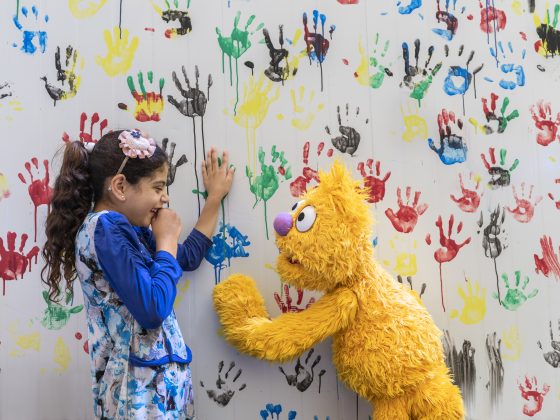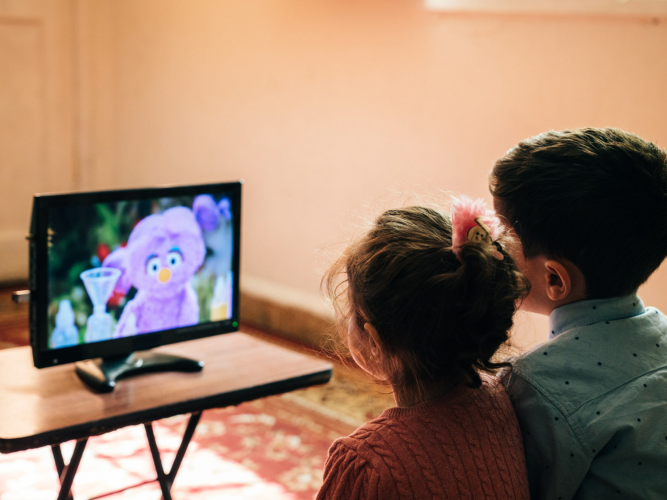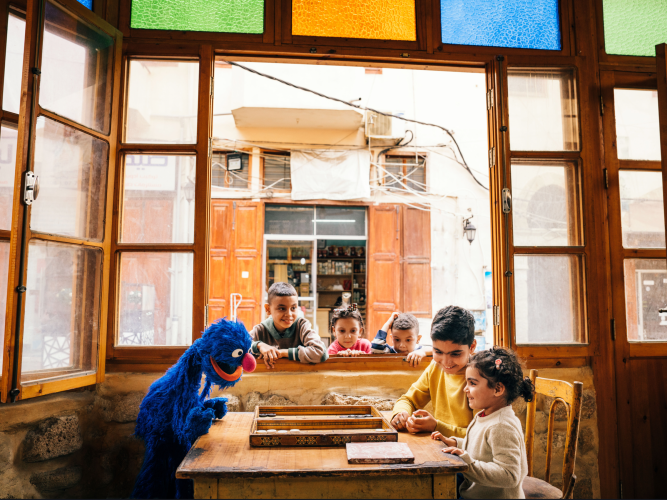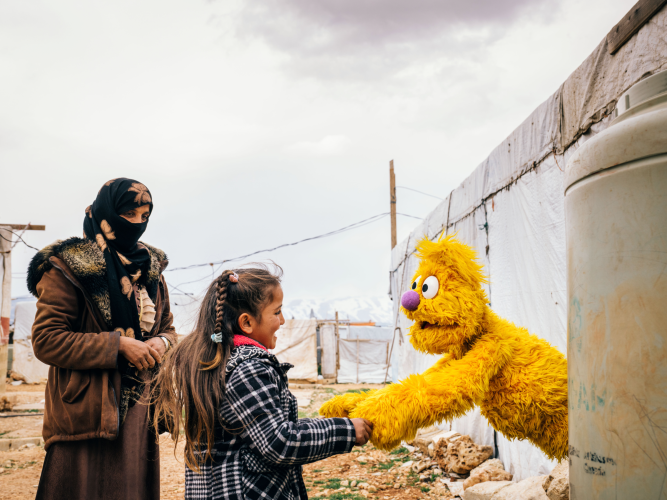
Ahlan Simsim’s direct services and educational media deliver historic preschool learning gains in crisis contexts
A year of progress in 11 weeks for the most hard-to-reach children
This article excerpt, by Sesame Workshop’s President, Sherrie Westin, and David Miliband, President and CEO of the International Rescue Committee, was originally published on the MacArthur Foundation’s Perspectives on 100&Change blog. Read the full article.
When Sesame Workshop and the International Rescue Committee first launched Ahlan Simsim five years ago—with the historic support of the MacArthur Foundation’s first-ever 100&Change award—our goal was to address a grave humanitarian crisis: a generation of children raised amidst conflict in Syria and the surrounding region with limited access to early childhood learning and development opportunities. Today, as the largest early childhood intervention in the history of humanitarian response, Ahlan Simsim (“Welcome Sesame” in Arabic) has delivered those critical opportunities to more than a million children and caregivers through direct support for families and over 23 million children through an award-winning locally produced version of Sesame Street.
Ahlan Simsim, though, has another goal: sharing our research and learnings, so that our work can have a ripple effect that helps children affected by crisis and conflict around the world. A commitment to research has always been at Ahlan Simsim’s core, with a robust plan built into the design with an external evaluation partner, NYU’s Global TIES for Children. By sharing the lessons learned from our program, we are laying the groundwork for others to adapt, build upon, and scale up these models for other humanitarian contexts.
This week, NYU released the results of these landmark studies, with good news for children, families, educators, and policymakers. The findings point to Ahlan Simsim’s substantial impact on children’s learning, demonstrating the power of integrating educational media with early childhood development services—with significant implications for delivering early learning in humanitarian and other contexts where traditional in-person schooling is not possible.

Lessons and Impacts of the Ahlan Simsim TV Program
A study in pre-primary classrooms in Jordan on children’s emotional development.

Effects of Remote Early Childhood Education
A study conducted with families in hard-to-access settings in Lebanon.

An Evaluation of a Phone-Based Parenting Program
A study with Syrian and Jordanian Families with Young Children
